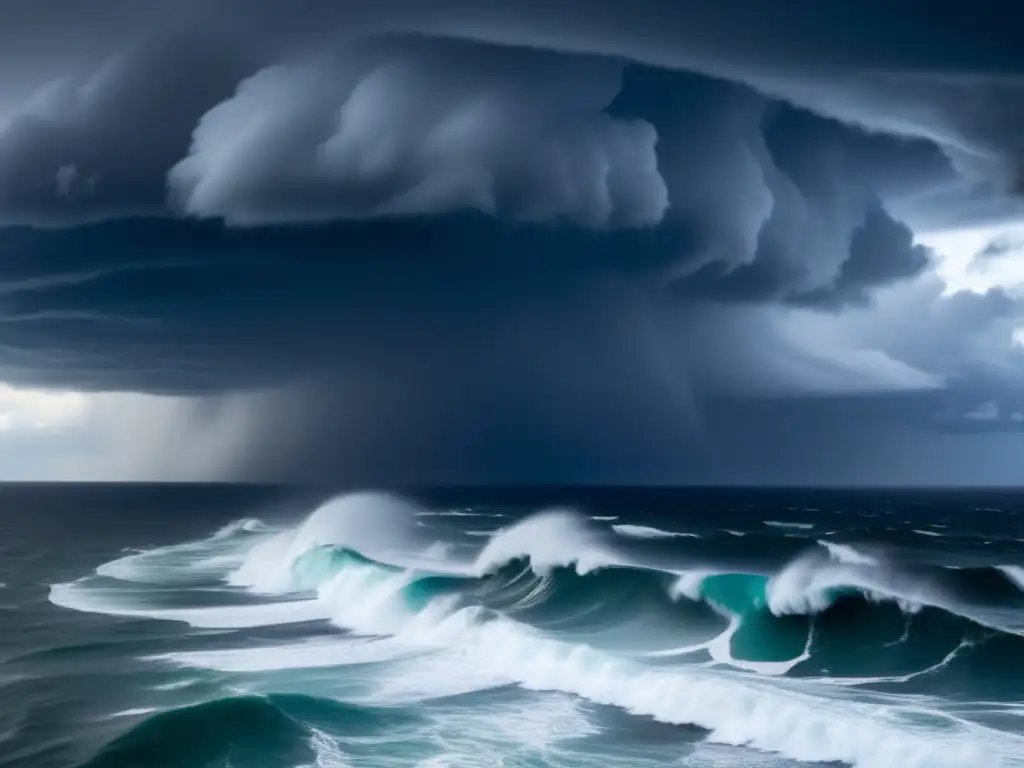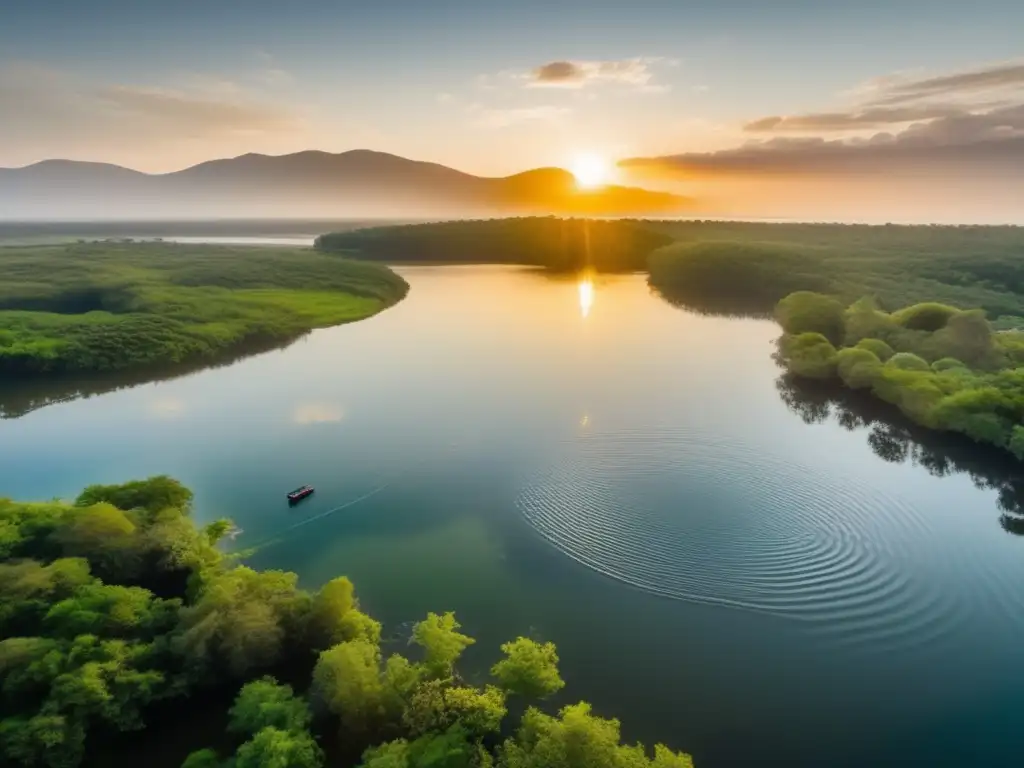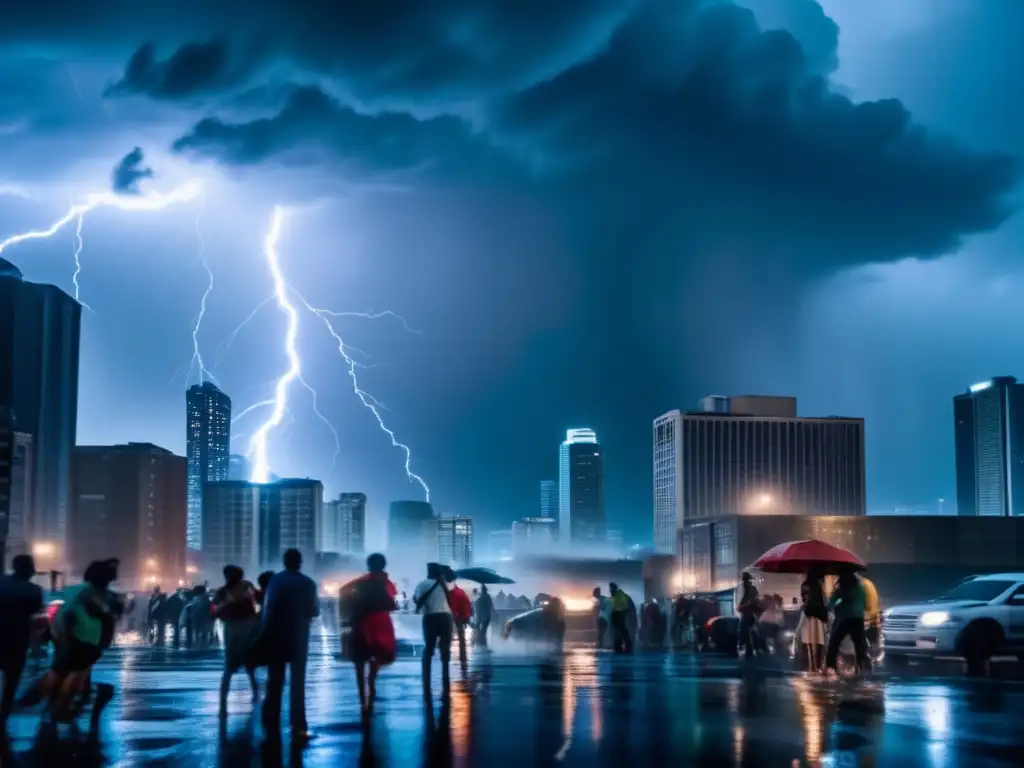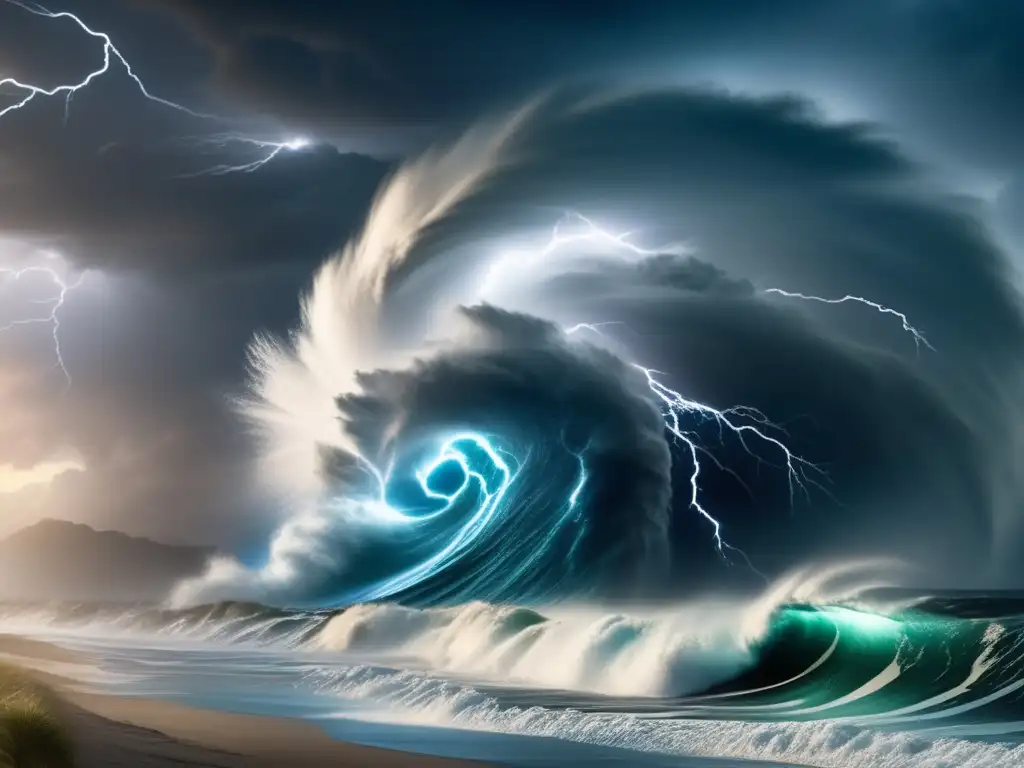The Impact Of Hurricanes On Freshwater Resources

The Impact of Hurricanes on Freshwater Resources
Introduction
Hurricanes are one of nature's most powerful and destructive forces. These storms can cause a significant impact on freshwater resources, including drinking water, aquatic ecosystems, and agricultural production. The effects of hurricanes on freshwater resources can last for several years, and the damage can be extensive, affecting communities at large.
Impacts of Hurricanes on Freshwater Resources

Storm Surge
During a hurricane, storm surges can result in coastal flooding, making freshwater sources vulnerable to saltwater intrusion. This saltwater intrusion can contaminate surface and groundwater sources, damaging aquatic biodiversity, and affecting the quality of drinking water. Additionally, saltwater can damage crops and vegetation, reducing agricultural productivity, and negatively impacting the economies of affected regions.
Heavy Rainfall and Flooding
Hurricanes can bring heavy rainfall and lead to flooding, which can overwhelm sewer systems and cause sewage overflows. The contaminated water can mix with floodwaters, contaminating freshwater sources and making them unsafe for use.
Wind Damage
Hurricane-force winds can damage water distribution and treatment facilities, leading to water contamination. The damage can also compromise water storage tanks, pipelines, and pumps, exacerbating the negative effects of saltwater intrusion and sewage overflow.
Effects on Aquatic Ecosystems

Saltwater Intrusion
Hurricanes can cause saltwater intrusion into freshwater aquifers, rivers, and estuaries. Saltwater intrusion can kill freshwater vegetation, damage crops, and threaten the survival of freshwater fish and other aquatic species. Moreover, saltwater intrusion can lead to changes in water chemistry, negatively impacting the food chain and aquatic biodiversity.
Loss of Wetlands
Hurricane-induced flooding can result in significant losses of wetlands, which are critical habitats for many aquatic species. Loss of wetlands can have long-term ecological consequences, including increased water pollution, reduced storm protection, and decreased biodiversity.
Erosion
Hurricanes can cause significant erosion of riverbanks and shorelines, leading to the sedimentation of freshwater ecosystems. Sedimentation can reduce the water quality and negatively impact fish and other aquatic species' habitat and breeding grounds.
Impact on Drinking Water

Water Contamination
Flooding can result in water contamination by bacteria, viruses, and other pathogens. The contaminated water can spread waterborne diseases, making it unsafe for consumption by humans and animals.
Shortage of Drinking Water
Hurricanes can result in the shortage of drinking water due to water infrastructure damage or destruction. Communities may have to rely on bottled water, which could be expensive, rare, and not readily accessible to all members of society. Shortage of drinking water can lead to dehydration, hunger, and other health issues.
Difficulties in Water Treatment
The aftermath of a hurricane can lead to water treatment facilities losing electricity, which impairs their ability to treat water effectively. The facilities' damage can also hamper their ability to produce clean, safe drinking water in the short term.
Recovery and Preparation

Preparation
Communities and governments must prepare for hurricanes to mitigate their effects on freshwater systems. This includes developing emergency response plans, conducting regular maintenance of water infrastructure, and ensuring adequate backup power and supplies.
Recovery
Recovering freshwater resources after a hurricane requires significant investment and effort. Recovery efforts include water quality testing, repair of damaged infrastructure, and monitoring of water sources for signs of contamination.
Long-Term Planning
The long-term planning of freshwater resource management is essential in preventing the negative effects of hurricanes on these freshwater systems. Communities can invest in sustainable water management practices like rainwater harvesting projects and the implementation of green infrastructure that helps reduce the impacts of future hurricanes.
Frequently Asked Questions

-
Can saltwater intrusion be prevented?
Saltwater intrusion can be prevented by constructing levees or floodgates and implementing groundwater extraction controls to reduce excessive pumping.
-
What can communities do to prepare for hurricane season?
Communities must develop emergency plans, establish alternative water sources, and improve water infrastructure management to prepare for hurricane season.
-
How long does it take for freshwater resources to recover after a hurricane?
The recovery time for freshwater resources depends on the extent of damage caused by the hurricane. In some cases, it may take several years to restore freshwater sources to their pre-hurricane state.
-
Can hurricane-related water contamination be treated?
Yes, contaminated water can be treated through boiling, chemical treatment, or filtration to remove pathogens and other contaminants. However, it's advisable to avoid consuming contaminated water during a hurricane event.
-
How can communities work to prevent hurricane-related water contamination?
Communities can adopt sustainable practices like green infrastructure, rainwater harvesting, and wastewater treatment plants to ensure they are adequately prepared for potential hurricane events.
Conclusion
Hurricanes can severely impact freshwater resources, including drinking water, aquatic ecosystems, and agricultural production. The aftermath of a hurricane requires significant investment and effort to restore freshwater systems to their pre-hurricane state. Governments and communities must invest in long-term solutions and emergency response plans to prevent the negative impacts of future hurricanes on freshwater resources. We encourage you to share this information with your community and work towards creating a more resilient society in the face of natural disasters.
Additional Resources

 The Mathematics Behind Hurricane Modeling
The Mathematics Behind Hurricane Modeling Extra-Tropical Cyclones: The Cold Cousins Of Hurricanes
Extra-Tropical Cyclones: The Cold Cousins Of Hurricanes The Health Risks Associated With Hurricanes
The Health Risks Associated With HurricanesIf you want to discover more articles similar to The Impact Of Hurricanes On Freshwater Resources, you can visit the Basic knowledge about hurricanes: category.
Leave a Reply

Articulos relacionados: